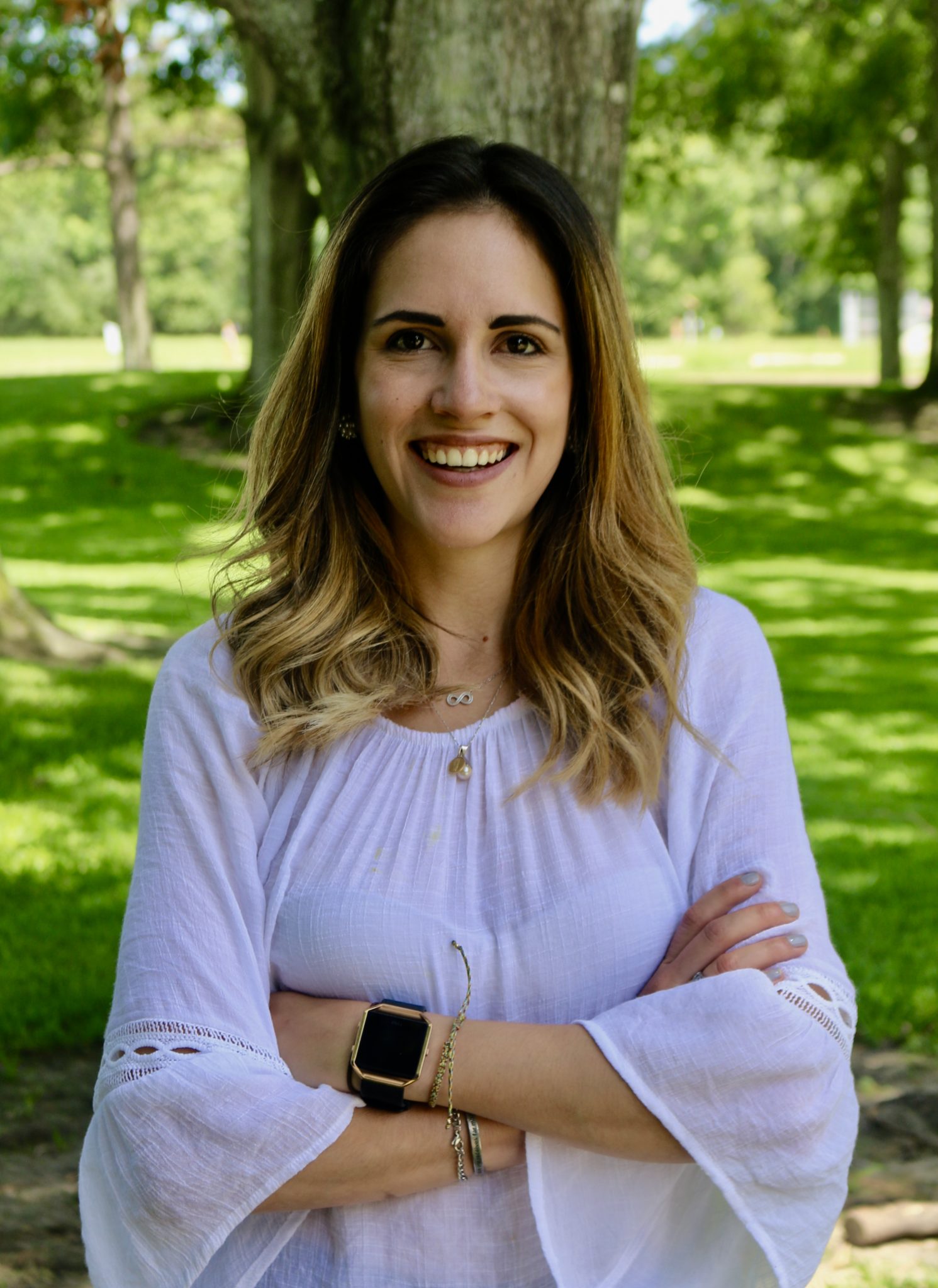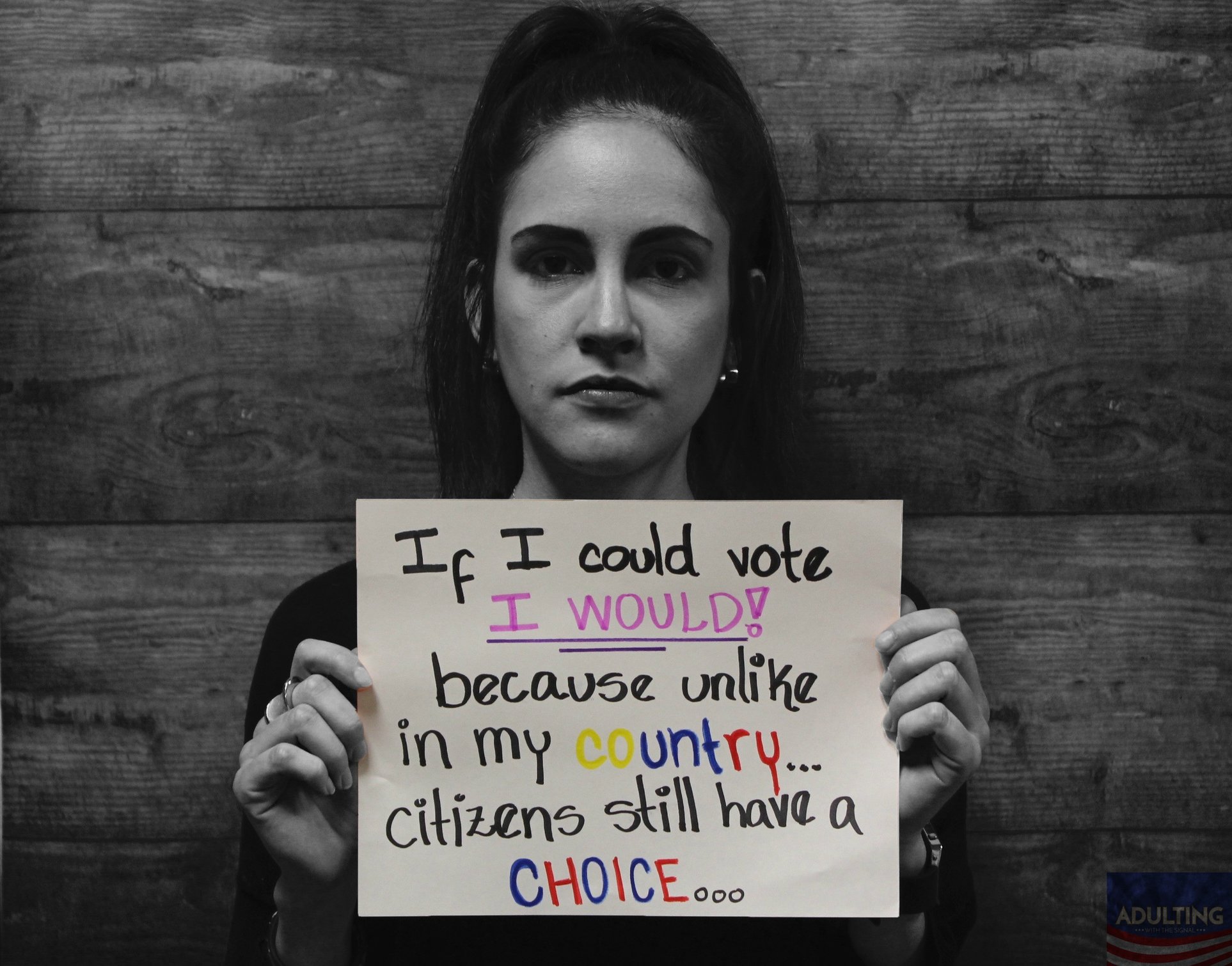Q&A: International student Katherine Rodriguez talks limitations, goals and Facebook scholarship
Katherine Rodriguez, digital media studies graduate student and audience engagement editor of The Signal, was born and raised in Venezuela. Inspired by acts of censorship in her home country, Rodriguez has spent the past few years in the United States pursuing an education in the communications field.
As an international student, Rodriguez said she has faced limitations but continues to work towards her career goals. In the Q&A below, Rodriguez talks about her international student experience in-depth.

Q: What was it like growing up in Venezuela and what made you want to come to the United States? How long have you been in the U.S.?
A: My childhood in Venezuela was nothing but great. I grew up in a small town, fairly safe and full of lovely people. When I was in high school there were resources, food was not scarce and it was relatively safe to get out of your home. I knew I would come to the U.S. to pursue my bachelors, so I was kind of “prepared,” though no one really can prepare you for leaving everything you had. I moved to Philadelphia in August of 2012, and have now been in the United States for 6 years.
Q: What has been your biggest challenge since coming to the U.S.?
A: I would have to say getting used to the lifestyle. Specifically the “immigrant lifestyle.” There are so many rules, so many limitations, so much paperwork that it feels like every step you take is being watched.
Q: You received your bachelors in Radio, Television and Film from the University of North Texas (UNT) and are currently pursuing your masters in Digital Media Studies here at UHCL. Why did you choose those programs? What are your career goals?
A: I remember from a very young age I already knew I wanted to be involved in media. I had always loved television and spent most of my childhood acting, so when I grew up I figured what I really wanted to be was a journalist.
It was May 27, the day before my birthday, when I found out one of the most prominent networks in Venezuela had been taken off the air. The government took control of the media, infringing the constitution and preventing the public from accessing transparent information. That’s when I felt like it was my duty to study journalism and fight for the truth.
I chose UNT primarily because of its program and reputation, and I could not have made a better choice. I loved every moment of it. When I graduated and spent a year working as a Digital Content Producer for the CBS/Telemundo local affiliates in Austin, I discovered the power that the digital spectrum has on audiences. Therefore, I decided to pursue my Masters’ in Digital Media.
Q: How has your experience as an international student at UHCL differed from your time at UNT?
A: Sometimes, I feel at UHCL I am more limited than what I was at UNT. I need a specific amount of hours to do internships, for example. Since I am in a two-year program, I feel like that number is too high and I’m being prevented from getting experience in the field. Maybe it’s just me and the rules have not actually changed, but that’s just how I feel.
Q: In your time in the U.S., have you noticed any changes for international students?
A: Absolutely, given the current political climate in the U.S., there are a lot more questions, bigger fears, and even more limitations. It was already scary to go through immigration and customs during the Obama Administration. Now, with President Trump signing travel bans and kicking out immigrants who have been in the U.S. for years, it’s all gotten worse. Even I [who has] been here for so long, sometimes question what would happen if the president decides to sign a travel ban for Venezuelan citizens. I feel like I’m walking in quicksand and nothing is certain.

Q: Since being in the U.S., have you had experienced discrimination based on your international student status?
A: I would not say it’s discrimination, but there’s always the “Ohhh, you are international?” look on people’s face. You definitely feel people’s perception of you change in an instant, and they start asking questions that you really don’t even want to answer.
Q: What are some questions that you are tired of being asked? What is a question you feel is not asked enough?
A: In my case, since I am from Venezuela, I get a TON of questions about the current political climate and the overall chaos that’s going on back home. I get questions about Venezuela’s president almost on a daily basis, and sometimes it can feel like too much.
One question I feel was never asked enough is, “What can I do to help you?” Like I stated before, international citizens deal with so much and are limited in so many ways that I wish people educated themselves a little bit more and offered a helping hand. That changes everything.
Q: Do you feel that being an international student helps or hinders your current and future goals?
A: I will always call myself lucky for having had the opportunity to come to the U.S. and pursue a better future. Nevertheless, not being a “citizen” or even a “resident” will always be a challenge. I’ve dedicated all of my time the past years to ensure I have a future, so whether I continue living in the U.S. or go somewhere else, the goal of being a successful professional remains.
Q: You recently received the $10,000 National Association of Hispanic Journalists Facebook Journalism Project Scholarship. As one of the only five winners of this particular scholarship nation-wide, what is the scholarship for and what does it means to you?
A: At the beginning of the year, Facebook announced a partnership with five journalism associations that promote diversity in the media. Every year, Facebook will give each of these organizations $50,000 in academic scholarships, and each organization chooses 5 students to be rewarded. Among the partners was the National Association of Hispanic Journalists, which I’ve been a member for years now. This specific scholarship aims to provide financial help for students in digital media and digital journalism.
When I applied, I NEVER thought I was going to get it. NAHJ has thousands of members nationwide, and overall it was very competitive. This is the last year of my masters and this scholarship means the world to me. My family and I have worked very hard for my education, so I feel like we all deserve this award.
Q: Lastly, if you can offer one piece of advice to international students, what would it be?
A: Never, EVER be afraid to try and take risks. Even with my status and everything that comes with it, I’ve had incredible opportunities in school and in the job field. I attribute that to the fact that I was never afraid to take the risk. With job opportunities, I applied even when the description stated it was only for citizens. With the scholarship, I applied even when I knew the chances were small. Your visa does not define you, your talent does.
Also published on Medium.

